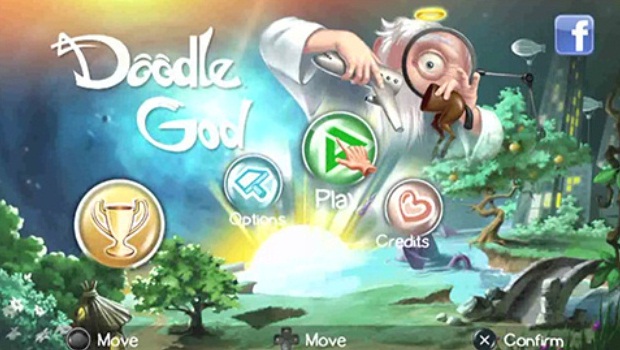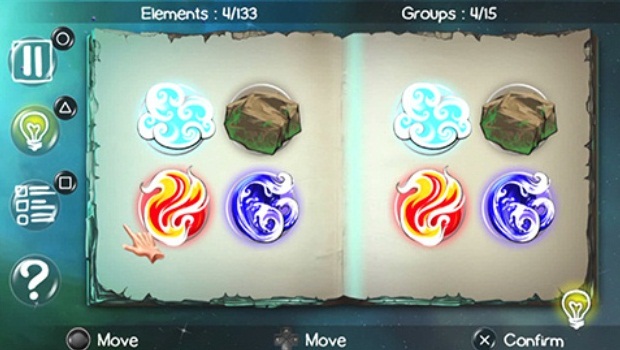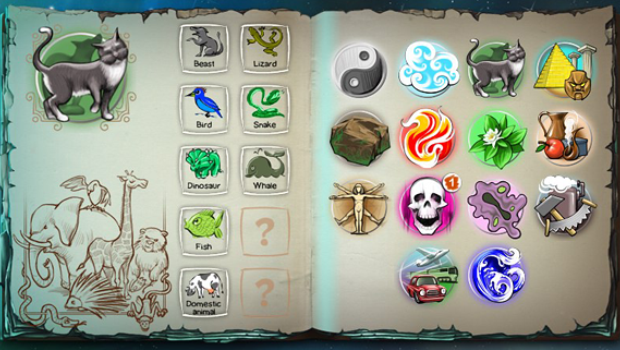Vita games that are ports of iOS titles have a certain standard to live up to. Bringing a mobile game to a dedicated handheld certainly widens the audience, but also tends to raise the price. Doodle God, from JoyBits Co., is a few years old to mobile gamers but Vita gamers now get a chance to experience this unique, thought-provoking title.
Doodle God has players matching ingredients to make something new. A quirky narrator briefly sets the scene, but that 30-second clip does little more that invoke a chuckle. Doodle God is not about a story. In fact, there is not even a self-driven narrative that can be woven into the background of the game. The game is based solely upon combining two things and seeing the outcome. The player starts with four ingredients, each one lumped into its own parent category (orbs). Gameplay consists of tapping an orb to open an element (such as water), tapping another orb to open its selection on the other half the screen (say, earth), then finally tap two selections to create the end product. You are greeted with wiggling items, denoting a failure, or presented with a new item and a (sometimes clever) quote. That’s it.
While this seems like a thought-provoking process, it quickly becomes repetitive. And the more elements you create, the more the games flaws surface. Doodle God has been out for some time, mind you, so this was a great opportunity to fix a few nagging issues when they ported the game. Instead, it’s a unrefined port.
The more things you create, the more cluttered this process becomes. An easy way around this would be to notify the player that they tried to mix element x with element y. Instead, there are no visual clues of what you have mixed together besides the log book that notes all of your successful combinations. The last thing I wanted to do was scroll through a list of items I had already created when I booted up Doodle God.
There is a handy tip system that needs some time to recharge between uses. It opens two sections that have elements that will make a new item. But to counter this feature, there is a gold trophy for completing the game without using hints. So the whole time I played the game, I was conflicted on whether I wanted to go further or get the gold trophy. Getting the gold trophy prevailed, which just aggravated me more.
Things get worse when you look at the pricing scheme for Doodle God. On my Android phone, I can get a free-to-play version with ads, more game modes, and updated content. Cleaning out the ads, but keeping the additional content, I can pay $0.99. The Vita game, a stripped version of the Android game, will set you back $5.99. So for a dollar, or free if I want to play with ads, I get more content than a six dollar game on a system built for games. For the life of me, I can’t make sense of that.
The Vita version of Doodle God may look a little prettier on that OLED screen, but with clunky gameplay and missing content, I have nothing else to say other than steer clear. Worse than the Farming Simulator debacle on Vita, Doodle God is further proof that simply porting over an iOS or Android game and charging more for it should be considered an unacceptable, and frankly offensive, business practice.
This review was written based on gameplay with review code provided by the publisher. For more information regarding our review processes, go here to read more.



